1- Northeast Asian countries are getting closer together
The Northeast Asian region had a turbulent diplomatic year in 2023, focusing on three economic powers China, Japan and South Korea, with the relations revolving around these three powers still being the main factor governing all movements of diplomatic relations in the region.
The rapid rapprochement between neighboring countries Japan and South Korea has become an unexpected and prominent political and diplomatic development in early 2023. Japanese Prime Minister Fumio Kishida's visit to South Korea in early May marked the full resumption of official diplomacy between the two countries' leaders, which had been frozen for more than a decade.
In 2023, Japan-China relations also experienced many ups and downs related to historical issues or export control measures between the two countries in the semiconductor war... Chinese President Xi Jinping and Prime Minister Kishida had a meeting on the sidelines of the Asia- Pacific Economic Cooperation (APEC) Summit in November, in which they reaffirmed their commitment to promoting a "mutually beneficial strategic relationship", emphasizing common economic interests and agreeing to maintain close communication at all levels, including at the highest leadership level.
The resumption of the trilateral mechanism in late 2023 has created a new prospect for trilateral relations in 2024, paving the way for positive diplomatic movements in the region in the future.
2 - Armenia and Azerbaijan move towards normalizing relations
Azerbaijan and Armenia issued a joint statement on December 7, agreeing to take new steps towards normalizing relations and exchanging prisoners of war, as part of joint goodwill gestures aimed at promoting reconciliation of the decades-long dispute between the two South Caucasus neighbors.
The statement said the two sides agreed to "take tangible steps to build trust" and reaffirmed "the intention to normalize relations and sign a peace agreement." Baku will release 32 Armenian prisoners of war, while Yerevan will release two Azerbaijani servicemen, calling this an act of humanity and goodwill.
“The two countries reaffirmed their intention to normalize relations and reach a peace treaty on the basis of respect for the principles of sovereignty and territorial integrity,” the statement added.
The two neighboring countries affirmed that they will continue to discuss additional confidence-building measures to be implemented in the near future and called on the international community to support these efforts. “The Republic of Armenia and the Republic of Azerbaijan share the view that there is a historic opportunity to achieve long-awaited peace in the region,” the joint statement said.
European Council President Charles Michel immediately hailed the deal as a major breakthrough. He also particularly welcomed the agreement between Armenia and Azerbaijan to release detainees and create “an unprecedented opening for political dialogue”.
3 – The world economy overcomes a new recessionary spiral
2023 continues to be a turbulent and difficult year for the world economy as it faces a series of challenges. From the escalating Russia-Ukraine conflict, the disruption of energy and food markets caused by war and most recently the comprehensive crisis in the Gaza Strip... have made the global economy in 2023 always in a fragile state, vulnerable to economic or geopolitical risks.
However, there are still many bright spots in the main picture of the world economy in 2023. According to the IMF's World Economic Outlook report, core inflation is on track to decline from 9.2% in 2022 to 5.9% this year and this trend will continue to fall to about 4.8% in 2024. According to the Asian Development Bank (ADB), the Asian region's economy has shown more positive signs and the region's growth this year is expected to reach 4.9% (slightly up from the 4.7% forecast in September), mainly thanks to the recovery of the Chinese economy.
Overall, the world economy has experienced a volatile and challenging year 2023. However, the global economy has avoided a new recession. Along with that are positive signs such as increased consumer spending, production recovery, continued decline in unemployment rate and inflation on the way down... That is the basis for confidence and hope for a brighter global economy in 2024.
4 – The race to the moon is getting hotter
India’s successful landing on the Moon underscores growing interest in lunar exploration, fueled by both national pride and strategic considerations. On August 23, India became the first country to land on the south pole of the Moon with its Chandrayaan-3 mission, achieving a historic feat after Russia confirmed the failure of its Luna-25 probe.
More than half a century after American astronaut Neil Armstrong became the first person to set foot on the moon, a new race to Earth’s only natural satellite is underway. NASA is spending about $93 billion on the Artemis program through 2025, and companies around the world are rushing into the field. Meanwhile, US companies such as Intuitive Machines and Astrobotic are competing to operate the first commercial lunar landings this year after Japan’s ispace failed in April.
5 - India becomes the most populous country in the world
MarketWatch analyzed United Nations data showing that India has surpassed China to become the world's most populous country with a population of 1,425,782,975 as of April 14, while China's population will drop to 1,425,748,032. China has held the title of the world's most populous country since 1950 when the United Nations began publishing population data.
Although demographics are not a determining factor, they are seen as both an opportunity and a challenge for each country. Countries with younger, growing populations tend to have more dynamic workforces, more consumption, and as a result, higher economic growth rates.
Demographers predict that China’s population will shrink by 100 million people by mid-century, or more than the populations of all but 15 countries in the world today. Over the same period, China’s median age will increase from 39 to 51. Meanwhile, India’s population will reach nearly 1.7 billion by mid-century, with a median age of 39.
6 – AI is the keyword of 2023
Since the beginning of 2023, the whole world has been crazy about ChatGPT, released by AI research company OpenAI in November 2022. ChatGPT is a chatbot (conversation machine) capable of providing solutions to complex problems directly.
This technology can write essays, program and even draft business proposals. Accordingly, within seconds of entering keywords, ChatGPT will provide users with text, images, sounds and other entertainment media with quite perfect content quality.
With the benefits it brings, ChatGPT has opened a new trend that will explode in 2023 and attract billions of dollars in investment, despite the recession of the world economy.
Just weeks after its launch, the “super AI” has reached more than 10 million users and is growing rapidly. This success has helped OpenAI negotiate an investment deal worth $30 billion, double its 2021 valuation.
After investing $1 billion in ChatGPT in 2019, Microsoft recently planned to invest another $10 billion in exchange for a 49% stake in OpenAI. This "giant" even planned to integrate ChatGPT into Word, Powerpoint, Outlook and Bing search engine to compete with Google Search for market share.
7 - Catastrophic natural disasters in many countries around the world
*Early on February 6, a 7.8 magnitude earthquake struck and flattened an entire city in southeastern Türkiye bordering Syria, killing at least 56,000 people and injuring nearly 6,000 others. The shaking of the largest earthquake in the region since 1939 was felt as far away as Egypt, Lebanon and Cyprus. Italy also issued a short-term tsunami warning along its coast.
Many countries have quickly sent condolences and plans to support the countries affected by the earthquake. Azerbaijan will send a search and rescue team of 370 personnel and aid to Türkiye "in a short time". Condolences and pledges of support also came from Germany, the Netherlands, the US, Israel, India, Pakistan, Ukraine...
*Seven months later, the world continued to be shocked by the news that the most terrifying earthquake in history struck Morocco on September 8, killing nearly 3,000 people.
8- Global temperatures continue to break records
2023 is set to be the hottest year on record, with global temperatures hitting a 125,000-year high and threatening to exceed the 2-degree Celsius threshold set by the 2015 Paris Agreement.
The result has been a series of extreme weather events across the world, from historic wildfires to severe droughts to devastating floods. Droughts made worse by climate change are believed to have added to the destructive power of the deadliest US wildfire in a century, which killed at least 115 people on the Hawaiian island of Maui in August. Meanwhile, Canada is set to lead the world in forest area burned by 2023, with more than 18 million hectares of forest reduced to ash.
Faced with the urgent reality, after two weeks of intense negotiations in Dubai, on December 13, the countries attending the 28th Conference of the Parties to the United Nations Framework Convention on Climate Change (COP28) in Dubai, United Arab Emirates (UAE), closed and approved an agreement to send a strong signal to investors and policymakers about the world's desire to abandon fossil fuels. This is also what scientists say is the best and last hope to escape climate disaster. However, the ultimate success of the agreement still depends on the actions of each of us.
9 - War in Gaza
In September 2023, the Middle East received a positive news flow after the parties approved the Abraham Accords – a foundation for promoting relations between Israel and Arab countries. In addition, a ceasefire in Yemen was also maintained. These trends have reinforced the perception of a quieter Middle East region than two decades ago.
However, the situation changed on October 7, when the Hamas movement that controls the Gaza Strip attacked Israel, causing the bloodiest day in Israeli history. Determined to eliminate Hamas, Israel launched powerful airstrikes on Gaza. After difficult negotiations, a ceasefire was reached in November 2023, paving the way for the release of hundreds of hostages. After a few days of lull, fighting quickly resumed as the Israeli army stepped up its ground offensive into southern Gaza.
The prolonged conflict has left Gaza facing a devastating humanitarian disaster, with tens of thousands of casualties, millions of people displaced, and a series of severely damaged infrastructure. As 2023 comes to a close, Gazans enter a new year full of uncertainty. The Gaza crisis is at risk of spreading across the region and the future of the conflict remains an open question.
10 – The persistent war between Russia and Ukraine
Ukraine had hoped to end the war in 2023 with a large-scale counter-offensive, but this has not happened, as they have been unable to penetrate the Russian-fortified defenses for months. After Ukraine’s summer counter-offensive failed to live up to expectations, Kiev is still calculating its strategy for the next phase of the conflict and is determined to fight to regain territory currently controlled by Russia.
As the conflict nears its second year, thousands of Ukrainian civilians have been killed, cities and villages have been destroyed, and nearly a quarter of the country’s population has yet to return home. Russia is also believed to have suffered significant human losses and has spent tens of billions of dollars on defense equipment to support the war.
Despite the heavy losses, Russia has shown no signs of wanting to end its campaign in Ukraine. Russian President V. Putin declared that peace in Ukraine will only come when Russia achieves its goals of "de-fascization, demilitarization and ensuring the neutrality of Ukraine", which Kiev firmly rejects.
The failure to find common ground led to the collapse of the Black Sea Grain Initiative, brokered by the United Nations and Turkey, a rare example of productive negotiations between Russia and Ukraine, in July 2023. This development not only had a serious impact on food supplies and efforts to prevent famine in many places, but also showed that tensions in Russia-Ukraine relations will continue to persist in 2024./.
Source link



![[Photo] General Secretary To Lam receives Singaporean Ambassador Jaya Ratnam](https://vphoto.vietnam.vn/thumb/1200x675/vietnam/resource/IMAGE/2025/11/03/1762171461424_a1-bnd-5309-9100-jpg.webp)
![[Photo] Prime Minister Pham Minh Chinh receives the Chairman of the Japan-Vietnam Friendship Association in the Kansai region](https://vphoto.vietnam.vn/thumb/1200x675/vietnam/resource/IMAGE/2025/11/03/1762176259003_ndo_br_dsc-9224-jpg.webp)

![[Photo] Lam Dong: Close-up of illegal lake with broken wall](https://vphoto.vietnam.vn/thumb/1200x675/vietnam/resource/IMAGE/2025/11/03/1762166057849_a5018a8dcbd5478b1ec4-jpg.webp)


















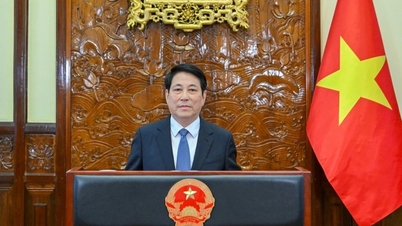



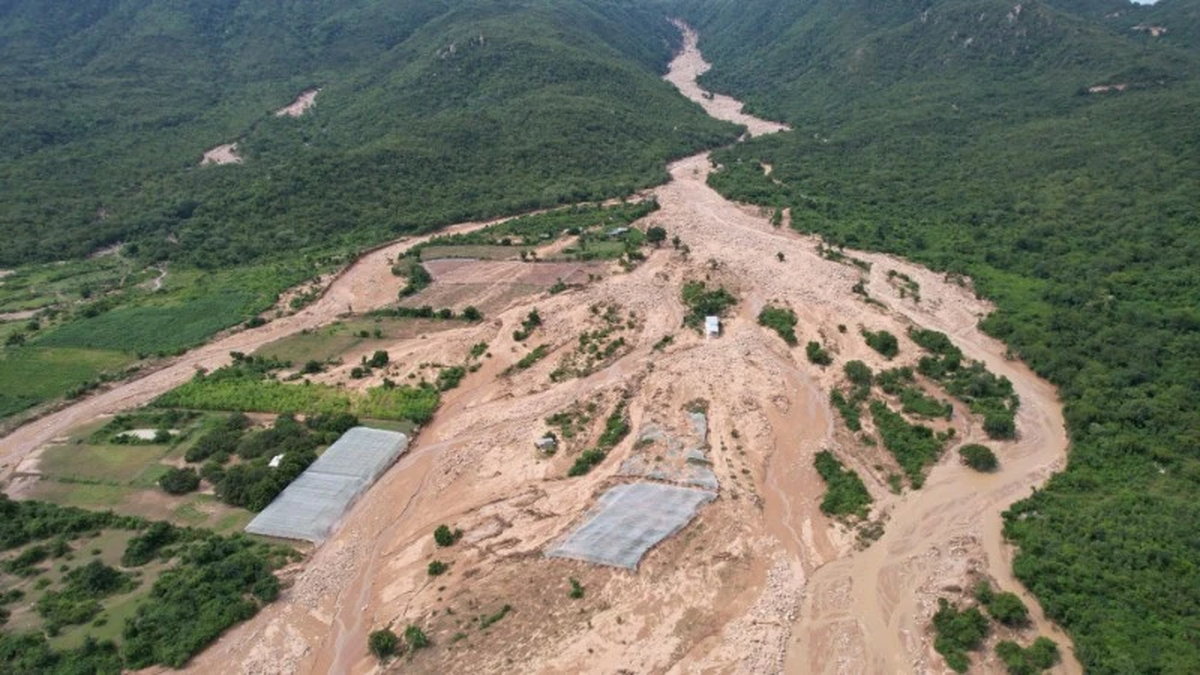





































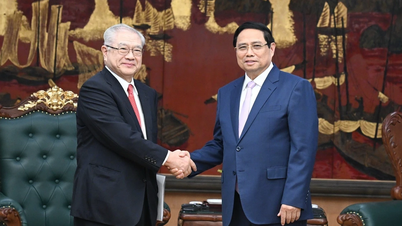

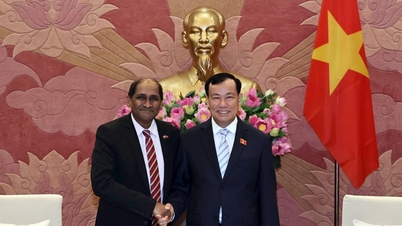




















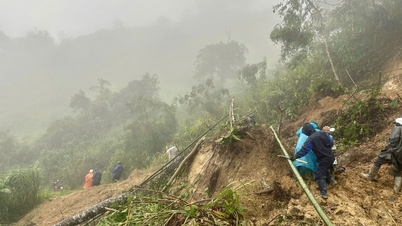















Comment (0)